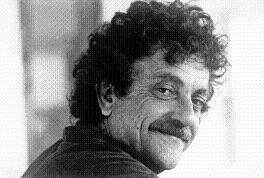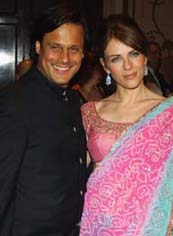 Author Kurt Vonnegut, the man best known for writing the dark, satirical novel “Slaughterhouse Five” died Wednesday at 84, leaving behind a literary legacy founded on a restless angst in search of truth. His novels and essays never stopped attacking the flaws and hypocrisies of societal institutions in all shapes and forms. His works always, in one bizarre way or another, asked the big questions about life, like “Why are we here?”, “Are there consequences for our choices as a culture?”, and “Where is God in all of this mess?”
Author Kurt Vonnegut, the man best known for writing the dark, satirical novel “Slaughterhouse Five” died Wednesday at 84, leaving behind a literary legacy founded on a restless angst in search of truth. His novels and essays never stopped attacking the flaws and hypocrisies of societal institutions in all shapes and forms. His works always, in one bizarre way or another, asked the big questions about life, like “Why are we here?”, “Are there consequences for our choices as a culture?”, and “Where is God in all of this mess?”
It is the question of the existence of God that Vonnegut seems to have wrestled with the most in his lifetime. In interviews, he attacked evolutionists as well as Christian extremists, and in speeches referred to himself as a humanist who lived “without any expectation of rewards or punishments in an afterlife.” He is a man who said, “If I should ever die, God forbid, let this be my epitaph: The only proof he needed for the existence of God was music,” while also once saying in a speech, “And if I should ever die, God forbid, I hope you will say, ‘Kurt is up in Heaven now.’ That’s my favorite joke.”
However, if Vonnegut was never completely convinced of the existence of God, he was clear on his role as a writer. He didn’t hesitate to refer to himself as a prophet in the Old Testament style of Jeremiah, trying to warn anyone who would listen that our world is on a path to a cultural and literal apocalypse. And while his razor-sharp insights and literary wit will long be treasured and discussed, in my mind, considering Vonnegut a prophet is inaccurate. Vonnegut, like so many other artists of his generation, seemed to lose sight of the fact that a true prophet not only points out the sins of society but also points the way to a greater truth that provides hope and a way out of our sin.


